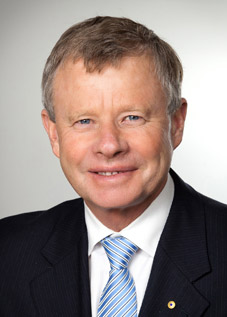
The New South Wales Police Force is a law enforcement agency of the state of New South Wales, Australia, established in 1862. With more than 18,000 police, it is the largest police force in Australia, policing an area of 801,600 square kilometres with a population of more than 8.2 million people.

Law enforcement in Australia is one of the three major components of the country's justice system, along with courts and corrections. Law enforcement officers are employed by all three levels of government – federal, state/territory, and local.
The role of Protector of Aborigines was first established in South Australia in 1836.

Ronald Sackville is the Chair of the Royal Commission into Violence, Abuse, Neglect and Exploitation of People with Disability. He is a former acting judge of the Court of Appeal of the Supreme Court of New South Wales and also a former judge of the Federal Court of Australia.
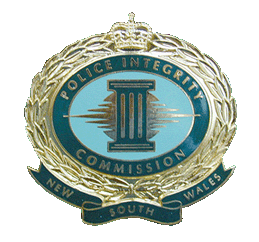
The Police Integrity Commission, was a statutory corporation of the New South Wales Government, responsible for the prevention, detection, and investigation of alleged serious misconduct in the Police Force in the state of New South Wales, Australia. The mission of the commission was to be an effective agent in the reduction of serious police misconduct. On 1 July 2017, the Police Integrity Commission was abolished and replaced by the Law Enforcement Conduct Commission.
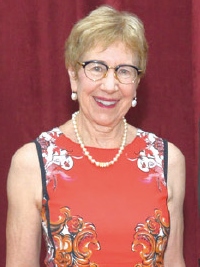
Margaret Joan Beazley,, is an Australian jurist who is the 39th and current governor of New South Wales, serving since 2 May 2019. She was the president of the New South Wales Court of Appeal, the first woman to hold the office, from 2013 until February 2019.
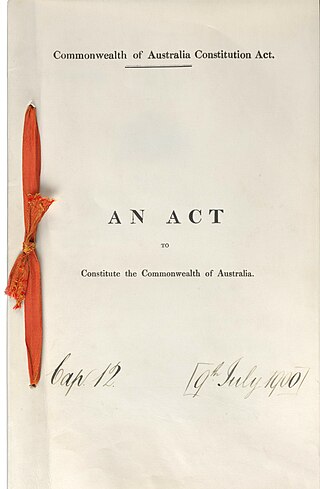
The Constitution of Australia is the supreme law of Australia. It is a written constitution that sets down the political structure of Australia as a federation under a constitutional monarchy and outlines the structure and powers of the Australian Government's three constituent parts: the executive, legislature, and judiciary. It also authorised the Queen to proclaim the actual act of federation, which was done by Queen Victoria on 17 September 1900, to take effect on 1 January 1901, the first day of the 20th century.
Ombudsmen in Australia are independent agencies who assist when a dispute arises between individuals and industry bodies or government agencies. Government ombudsman services are free to the public, like many other ombudsman and dispute resolution services, and are a means of resolving disputes outside of the court systems. Australia has an ombudsman assigned for each state; as well as an ombudsman for the Commonwealth of Australia. As laws differ between states just one process, or policy, cannot be used across the Commonwealth. All government bodies are within the jurisdiction of the ombudsman.
Wickrema Weerasooria was a Sri Lankan lawyer, civil servant, diplomat and an academic. He was the Permanent Secretary to the Ministry of Plan Implementation, former Sri Lankan High Commissioner to Australia and New Zealand. He served as Sri Lanka's first Insurance Ombudsman.
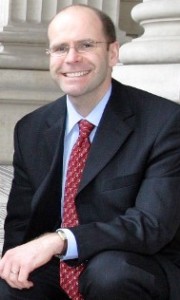
George John Williams is an Australian academic specialising in Australian constitutional law and the Deputy Vice-Chancellor of Planning and Assurance at the University of New South Wales. He was formerly the Dean of the Law Faculty.
Ian Freckelton is an Australian barrister, judge, international academic, and high-profile legal scholar and jurist. He is known for his extensive writing and speaking in more than 30 countries on issues related to health law, expert evidence, criminal law, tort law, therapeutic jurisprudence and research integrity. Freckelton is a member of the Victorian Bar Association, the Tasmanian Bar Association, and the Northern Territory Bar Association in Australia.
The Surveillance Devices Act 2007 (NSW) (“the Act”) is a piece of privacy legislation enacted by the Parliament of New South Wales the most populous state in Australia. It replaced the Listening Devices Act 1984 (NSW). The Act makes it an offence to record private conversations apart from in specific and defined circumstances. It makes provision for law enforcement officers to apply for warrants authorising the use of such devices and the circumstances in which judges of the Supreme Court of New South Wales might issue such warrants.
The Matthew Flinders Medal and Lecture of the Australian Academy of Science is awarded biennially to recognise exceptional research by Australian scientists in the physical sciences. Nominations can only be made by Academy Fellows.

Graeme John Jameson is an engineer, professor and Director of the Centre for Multiphase Processes at the University of Newcastle, Australia, in New South Wales, Australia. He is notable for being the inventor of the Jameson Cell mineral separation device, which he devised in the 1980s. The Jameson Cell uses bubbles to separate super fine particles during mineral processing. It is based on the froth flotation mineral separation process, first invented in 1905.
Robin Creyke is an Emeritus Professor of law in Australia.
The National Anti-Corruption Commission, often shortened to the NACC, is an independent federal integrity commission of the Australian Government that was established on 1 July 2023.
